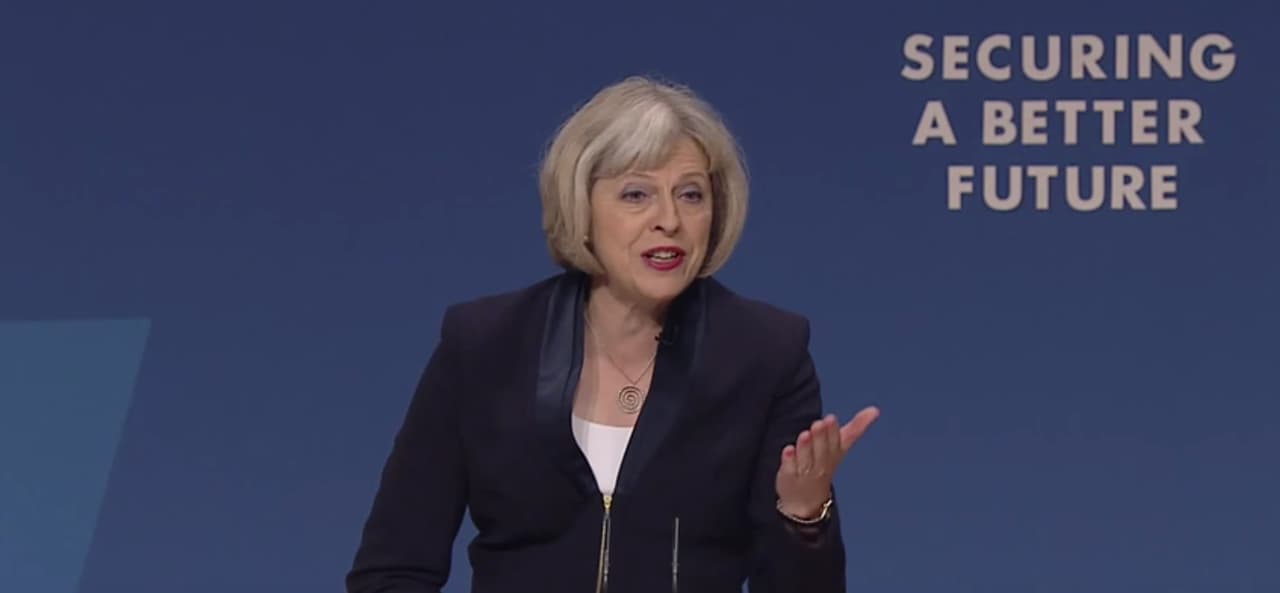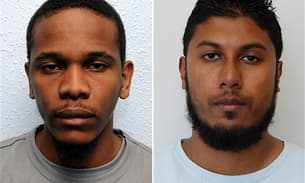
Terror suspect who May wants deported to Algeria asks Muslim clerics for permission to kill himself, court told
A terror suspect fighting deportation by the Home Secretary has asked Muslim clerics to issue a fatwa giving him permission to commit suicide to avoid being returned to his native Algeria where he fears torture, a court has heard.
The man, known only as Y for legal reasons, has told legal and medical experts that he is terrified of the Algerian security services, the DRS, and that he has already made three attempts on his own life since first being arrested by UK authorities in 2003.
He is one of six Algerians who appeared at the Special Immigration Appeals Commission last week in the latest stage of their fight against deportation from Britain on the grounds they are a threat to national security. The legal battle has now lasted 10 years for some of the men.
The six, who are free on SIAC bail, cannot be identified due to anonymity orders but allegedly include leaders of terror groups in European countries, an associate of Abu Hamza and two men linked to a UK terror plot.
None of the men have ever been convicted of terror offences in the UK. The Home Secretary argues they are a threat to national security and must be returned to Algeria.
Three of the men – Y, Z and W – are all considered to have severe mental health problems and said to be suicidal. Their lawyers claim that these conditions would be worsened by deportation because they would be detained and interrogated in solitary confinement for up to 12 days on their return.
This would breach their rights under the Human Rights Act and mean they should be allowed to remain in the UK, their lawyers say.
But Home Secretary Theresa May argues that because suicide is prohibited in Islam the men will not kill themselves.
A seventh Algerian, known only as G, won his appeal against deportation in 2013 when SIAC ruled a forced return would breach his human rights because he had mental health problems and was considered a high suicide risk.
At last week’s hearing, SIAC heard that Y, who has severe depression, post-traumatic stress disorder, epilepsy and angina, was tortured in Algeria in the 1990s.
But Robert Palmer QC, for the Home Secretary, told SIAC: “He won’t be in the conditions he remembers from the 1990s.”
SIAC was told by Home Office expert witness Dr Chisholm, a clinical psychologist, that Y’s faith was a “protective factor” and would prevent him from killing himself once returned to Algeria.
But expert witness Professor Kopelman, a consultant neuropsychiatrist, said he believed Y could overcome his religious hesitation about suicide, telling SIAC that Y “has asked religious authorities for a fatwa to give him permission to suicide”.
“He told me, ‘Once I’m dead they will leave my family alone’,” Professor Kopelman added. A fatwa is a pronouncement by a qualified Islamic jurist about the interpretation of Islamic law.
A second man, Z, also has serious depression and is considered by his lawyers and their expert witnesses to be a suicide risk if returned.
The Home Secretary counters that Z’s religious beliefs will protect him from killing himself.
Z’s lawyers argued his religion might not protect him during the 12 days of solitary confinement in Algeria.
“Solitary confinement for that length of time could be very distressing – enough to precipitate a post traumatic stress reaction,” said Professor Katona, a consultant psychiatrist who has evaluated Z’s mental state. “He’d be much more likely to harm himself impulsively.”
The third man, W, suffers from learning difficulties and has a diagnosis of paranoid schizophrenia. His lawyer, Stephanie Harrison QC, argued he’s at high risk of committing suicide if returned to Algeria.
The Home Office again argued that W’s religious beliefs would prevent him from committing suicide. Dr Chisholm said “The haram part of the religion would be a strong protective factor and would remain when he’s back in a Muslim country.”
SIAC also heard from Dr Alim, a chartered psychologist, who said that W is “already suicidal”.
Dr Alim said: “He’s prevented from praying and fulfilling religious duties that are important to him because of the voices he hears and the distress that causes him… he has at least a moderate risk of suicide currently.”
“He [W] had tried to find a way around his religion to be able to commit suicide,” she added, saying that W told her he had heard a story in the Sunnah that you can commit suicide in certain circumstances.
Professor Katona added that when it came to his ability to kill himself, he had assessed W’s “musing” about the religious significance of suicide as being “high risk”.
The Home Office says that the agreement on deportation with assurances between the British and Algerian governments mean there is no risk of ill treatment to any of the men.
A memorandum of understanding was signed between President Bouteflika and Tony Blair in 2006.
However, an expert witness questioned whether the assurances would be upheld given the time that has elapsed since they were signed and the unstable political and security situation in Algeria. The court heard that President Bouteflika is unwell and has not been seen in public since 2012, leading to fears that he has lost his grip on power.
Dr Claire Spencer, senior research fellow on the Middle East and North Africa at Chatham House, told SIAC there was a “grave risk to the appellants” that the DRS would not respect the assurances.
“There could still be elements of retribution for them having been disloyal to the Algerian state in the past”, she said.
Dame Anne Pringle, the current special representative on deportation with assurances, disagreed.
“My understanding is the DRS are not detaining terrorist suspects at present,” she told the hearing, adding that even if they were, “It is inconceivable they would breach those assurances.”
All six men are currently living freely under strict SIAC bail conditions.
SIAC chairman Justice Irwin will make a judgment on this appeal in the coming months. It is unlikely it will mean an end to the case.
What is SIAC bail?
Bail conditions imposed by judges at the Special Immigration Appeals Commission (SIAC) are varied depending on what the judges think the abscond risk and security threat is in each case.
Conditions can include a curfew, electronic tagging, a boundary zone, no access to phones or computers, vetting of individuals before the bailee can meet them, not being allowed to own a car, having your bank account and transactions monitored by the Home Office, not being allowed to work or study, not being allowed into your own garden, and a rigorous regime of calling the monitoring company, among others.
Breaches of SIAC bail can mean it is revoked and the individual taken back to prison. The six Algerians have spent months or years in prison and under SIAC bail. There are regular bail hearings and the conditions sometimes change. For example, some of the appellants in this case can go on day trips, pre-approved by the Home Office, to a different place in the UK (if escorted).
Follow Victoria Parsons on Twitter.




